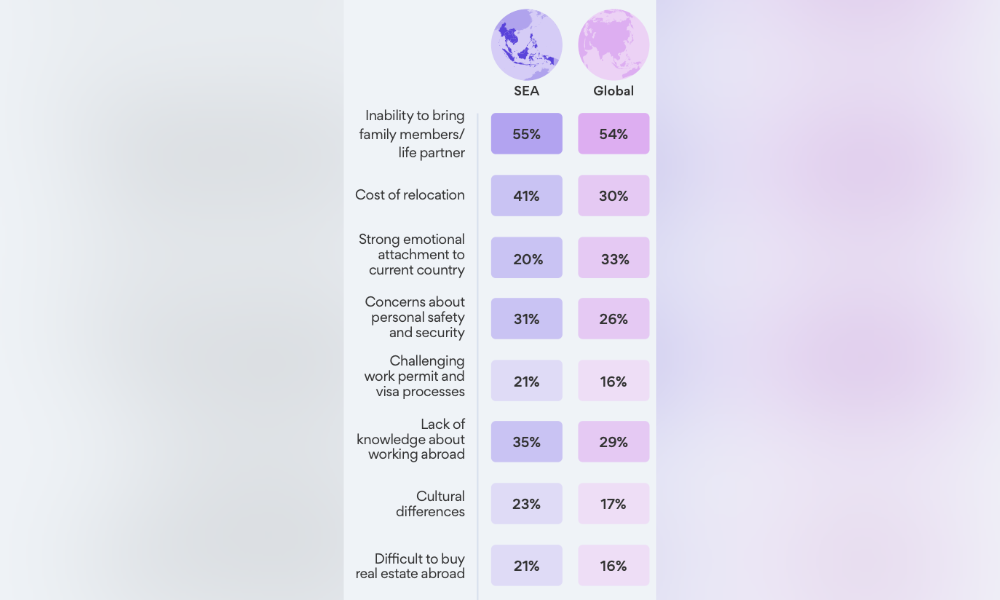
New findings reveal growing demand for remote benefits over physical relocation

The number of employees in Southeast Asia and Hong Kong who are willing to work remotely for an overseas employer has surged in 2023 amid reservations on physically relocating for a new job.
SEEK's latest Decoding Global Talent report revealed that 71% of employees are willing to work for a foreign employer with no physical presence in their country.
This is up from the 57% reported a year prior, and the 66% global average, according to the report.

In fact, the report found that the number of employees open to working remotely for an overseas employer outpaced the 68% of employees who are open to physically relocating abroad for work.
According to the report, the inability to bring family members or a life partner with them overseas is the top reason why SEA and Hong Kong employees are reserved against physically moving overseas.
"This reason is strikingly higher in Hong Kong (68%), Singapore (66%), and Malaysia (66%), suggesting that family unity and physical togetherness are greatly valued in these countries," the report read.
"Traditional values around family unity remain relevant and deeply entrenched even in their contemporary societies and modern lifestyles."
The second-highest reason against physically moving for an overseas job is the cost of relocation, according to the report.

The drive to look for overseas roles comes as remote work becomes popular across the world, enabling jobseekers to look for better opportunities abroad due to challenges in their home countries, such as:
This shift in work preferences among jobseekers opens an opportunity for employers looking for talent, according to the report.
"For employers, the shift toward remote work may be particularly appealing, especially as many struggle to fill roles in high-demand sectors," the report read.
"The findings suggest that companies can tap into the growing pool of talent in Southeast Asia and Hong Kong without the barriers posed by physical relocation."